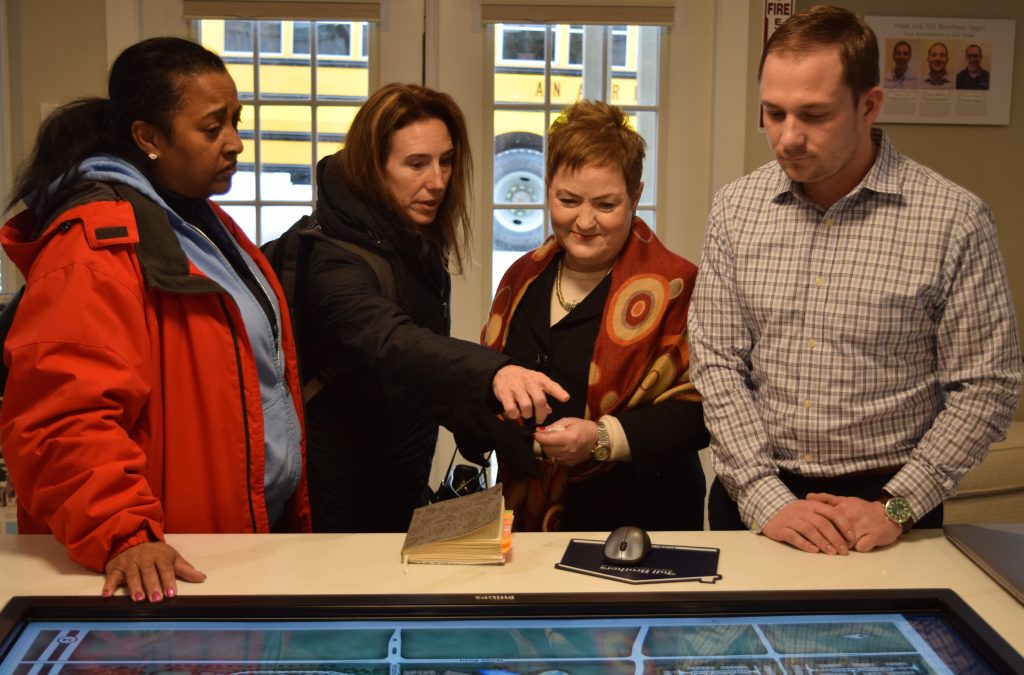
By Andrew Cluley- AAPS Communications Specialist
In the last several years, most of the attention on residential construction in Ann Arbor has focused on the heart of the city. These large projects have primarily been designed for university students, young professionals, and empty nesters and haven’t added many children to enrollment numbers in the Ann Arbor Public Schools. That’s about to change, as new projects approved throughout town are expected to be more appealing to families than the downtown high rises.
The city has approved three projects in the northeast part of town alone that will add 931 housing units. Projects from the Ann Arbor Housing Commission and others that have received some approval from the city would add another 207 single family homes and apartments. Mitchell and Mouat Architects co-founder Dick Mitchell describes the projects approved across the city as the largest number at any one time in the last 30 years.
To get a better sense of what’s coming the Board of Education recently took a trip to see some of the future development sites and get an estimate from Mitchell on how many students they will bring to AAPS. Mitchell projects an additional 642 K-12 students from the North Oaks, Woodbury Club, and North Sky developments in the northeast part of the city alone. He projects another 335 students from the South Pond Village behind Arborland, a pair of Ann Arbor Housing Commission projects, and a development on Packard.
Mitchell says projecting future enrollment is a bit of an art, not an exact science, but says a number of factors went into his projections. “It’s been the result of talking to the city and talking to developers about what their demographics are and their markets and what the unit types and sizes are and what their target market is,” he says. The result of the calculations are some larger projects that will be more appealing to young professionals and retirees will add fewer students than smaller projects more geared towards families.

While many of the projects haven’t broken ground yet, board members got a sense of how quickly they can be completed when they dropped into the sales office for the North Oaks development. Right now the sales office and a construction trailer are the only buildings at the site that spans both sides of Dhu Varren at Nixon, but the initial roads are in, and ground will be broken in the next couple of weeks for the first Carriage House and Town House models. Standing across from a poster that highlights the educational advantages of Ann Arbor Public Schools, Toll Brothers Project Manager Justin Whitney told school board members the first residents should arrive in August, with expectations to have 15 units closed on by October.
Following the tour, board members shared the visit highlights how quickly the additional housing will be finished. “Ann Arbor is growing and we want to ensure that our children have an excellent learning environment,” says President Christine Stead. “It’s impressive how quickly growth is occurring,” she adds.

Stead says the tour was useful, but the school board has already been reviewing how best to accommodate this enrollment growth. “We are looking at a strategy that addresses growth closest to the schools in these residential areas,” she says. “This is a dynamic process and we will continue to review projections and planned residential projects.”
The immediate response is to use modular classrooms at schools that are currently at capacity. The proposed sinking fund millage on the May 2nd ballot would provide funding for permanent expansion of schools if the projected enrollment growth proves to be stable and lasting.
While already approved projects are expected to bring almost 1,000 new students, they aren’t the only developments possible. There is a new proposal for apartments and condos for the long stalled Lower Town development on Broadway and the Barton Green proposal could bring 260 residential units on Pontiac Trail. There’s also the possibility that some downtown rental properties may be rehabbed into single family homes again as more students choose high rises. Mitchell says it’s too early to predict what impact these changes might have for AAPS, but everyone will be watching closely. “What the city has committed to do, and we will too, is just to keep monitoring and as the units get sold we’re going to get counts and try to be more accurate when we’re dealing with reality and not guessing,” he says.

Be the first to comment